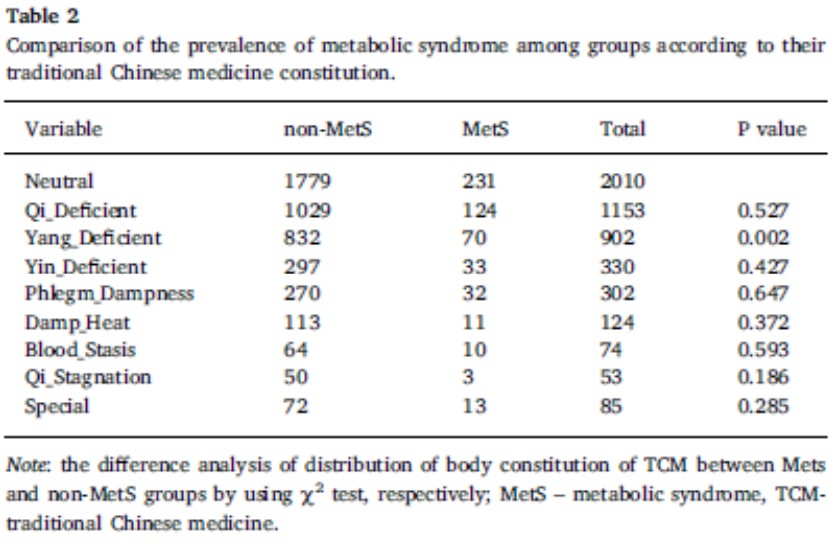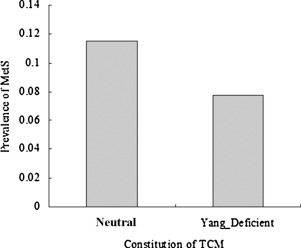The association between metabolic syndrome and body constitution in traditional Chinese medicine
Fei Xu#, Yuanhao Zhang#, Wenqiang Cui, Tao Yi, Zihui Tang*, Jingcheng Dong*
European Journal of Integrative Medicine. Volume 14, September 2017, Pages 32–36
Introduction: Humans have individual characteristics, and the TCM constitution reflects their inherent nature. Little is known in the general population about the relationship between TCM constitutions and metabolic syndrome (MetS). The purpose of the present study was to investigate the associations between traditional Chinese medicine (TCM) body constitutions and MetS.
Methods: This was a large-scale, community-based, cross-sectional study of 3748 participants. TCM constitution and the diagnosis of MetS were based on a body constitution questionnaire (BCQ) and a self-reported medical history, respectively. Univariate and multivariable logistic regressions (MLR) were applied to assess the strength of the associations.
Results: Univariate analysis showed that Yang-deficiency was significantly associated with MetS (P< 0.01). Furthermore, multivariable linear regression showed that Yang-deficiency constitution was significantly and independently associated with MetS, after controlling for potential confounding factors (P<0.01). As compared with neutral participants (ostensibly normal, with no imbalance), participants with Yang-deficiency constitutions had a higher prevalence of MetS.
Conclusion: Our observations suggest that Yang-deficiency constitution is closely associated with MetS and provides evidence for the hypothesis that an unbalanced constitution is closely related to MetS in terms of occurrence, development, diagnosis, treatment, and prognosis.




